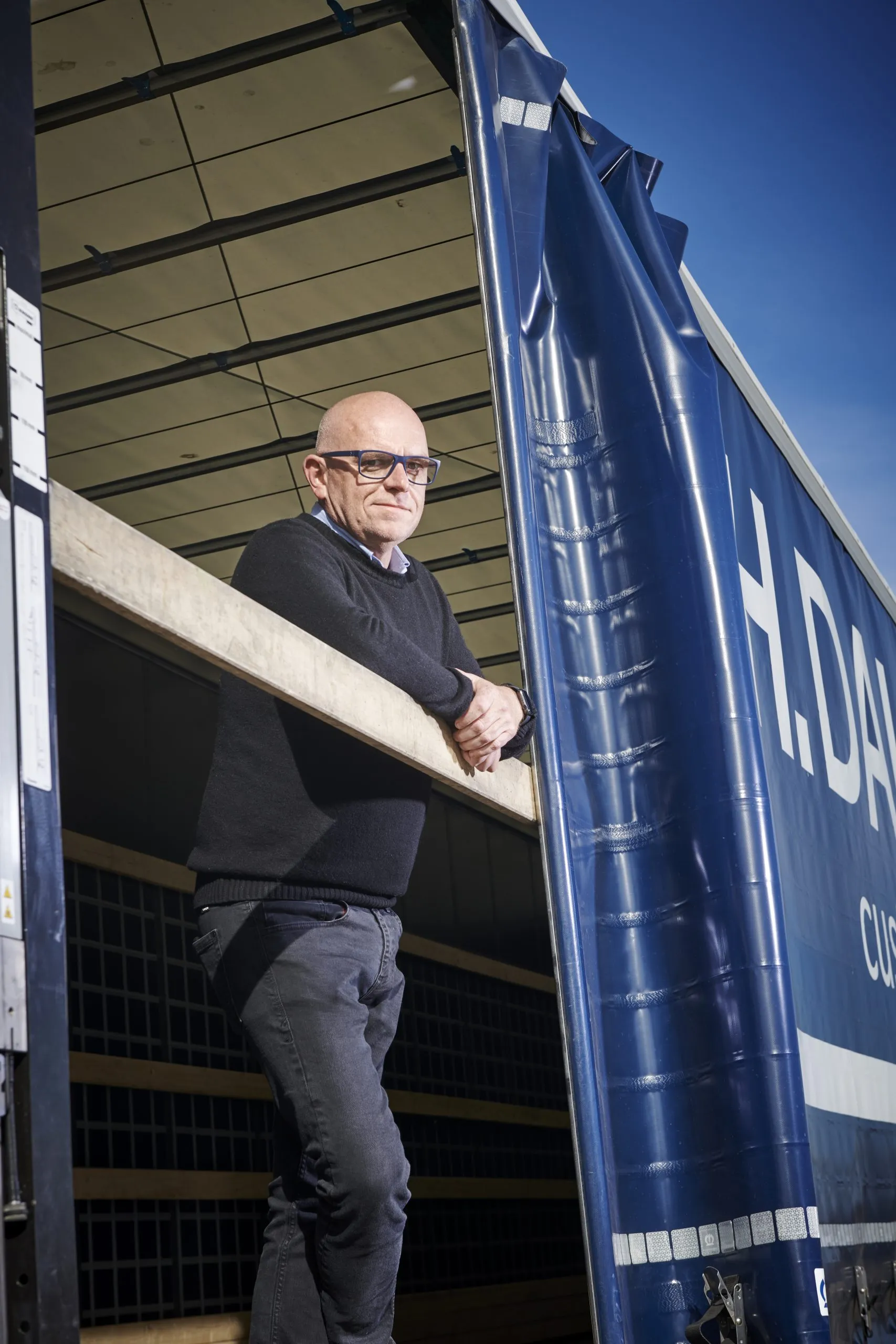What is the fuel of the future?
Developments in transportation - both commercial and private - are evolving rapidly. Hybrid and electric cars are gaining popularity in an effort to reduce CO2 emissions and take better care of the environment. Research and technology are constantly being refined, and we're getting better and better at finding more environmentally friendly ways to transport ourselves and our goods.

In a company like H. Daugaard, where we make our living from transportation and logistics, we are of course deeply concerned and very interested in the development that takes place in this area.
In this article, we sat down with our Fleet Manager, Palle Albertsen, to ask him some questions about his views on the fuel of the future. Because if there's anyone who is a real geek in this area, it's Palle.
Want to take a look into the crystal ball? Then read along here.
1. Shouldn't all vehicles just run on electricity?
Electricity is a great fuel - especially if it's green power - and especially for private drivers who drive regular routes to and from work every day, it's a great solution. But when it comes to a company like ours, which relies on some trucks to make very long journeys, it starts to become a problem.
The range is simply too poor, and if you ask me, I don't think this solution will be technologically developed enough to make sense on our long trips. Of course, it's a different matter on our shorter trips. Here we are already looking into what solutions we can implement.
If we can get to the destination in one charge, it's obviously a good solution, but as soon as we need to recharge, it becomes a problem because it takes too long. It's not necessarily possible to combine this with the other rest periods that our drivers have to take.
But power - and especially green power - is interesting in many other ways than fuel. Right now we have some trucks driving around with solar cells on the roof that produce power for the vehicle so it doesn't have to idle, but also so the driver can use essentials like the fridge, lights and coffee machine when he lives in his vehicle.

2. What do you see as the best alternative to current fuels?
In my opinion, diesel is currently the best fuel we have if you consider price, range and availability - but that's without looking at fuel from an environmental perspective. If we look just a little further ahead, I have no doubt that hydrogen will be the big fuel in the logistics industry.
We're not quite there yet, because the price is still too high to make it viable, but it's my firm belief that hydrogen is the best solution for a more environmentally friendly transportation in the future.
3. Can you tell us something about how hydrogen cars work and what the benefits are?
Hydrogen cars are equipped with a fuel cell. When you fill the car with hydrogen, it mixes with oxygen in the fuel cell and this chemical reaction creates electricity and water. The electricity is used to charge a battery, which is used to power the engine, and the water is released onto the road in the form of steam.
One of the great advantages of the hydrogen car is that it can be refueled quickly. Hydrogen is also an extremely environmentally friendly alternative to the current diesel fuel. Hydrogen can be produced in a completely CO2-free way using electrolysis. Using pure water and electricity, the electrolyzer splits water into hydrogen and oxygen using power from solar or wind energy, for example.
4. Why aren't there lots of hydrogen trucks on the road now?
The boring answer is that it's all about economics. It's always like that when something new is coming - just look at electric cars. They were terribly expensive at first, but now they're commonplace.
And just like with electric cars, it's also a question of being able to refuel around the country, so you don't end up stranded in the middle of the highway without fuel. And for there to be more hydrogen refueling stations, there must be demand for them. In other words, more hydrogen cars. So it's a bit of a chicken and egg question. Which comes first?
But I have no doubt that when we look ahead to 2030, there will definitely be hydrogen trucks on the road. We're already seeing it in Switzerland, where they are significantly further ahead. In Denmark, the economy sets the limit, but it's just a matter of time if you ask me.
Of course, no one can know for sure what the future holds, but at H. Daugaard , we do everything we can to keep up to date with developments and follow where new solutions can help ensure more sustainable transportation.


.svg)